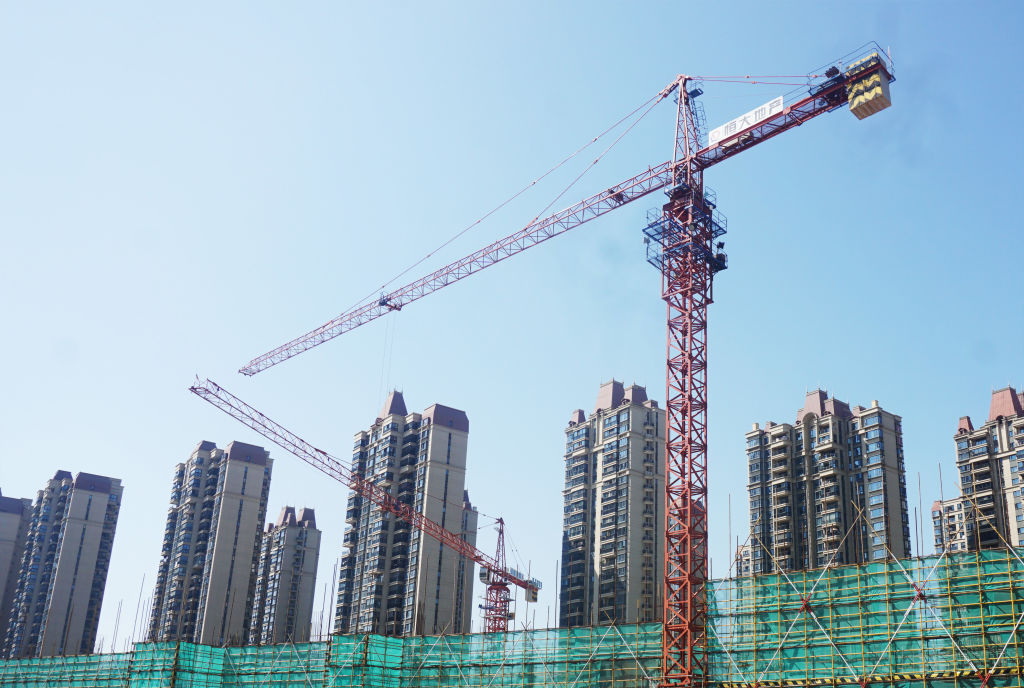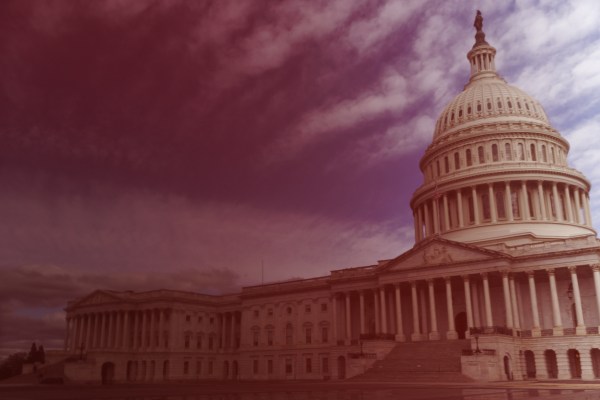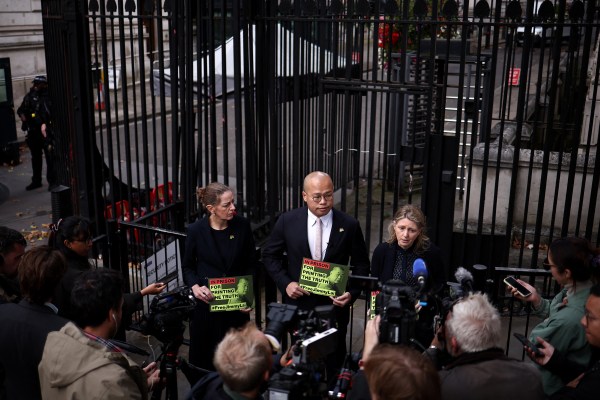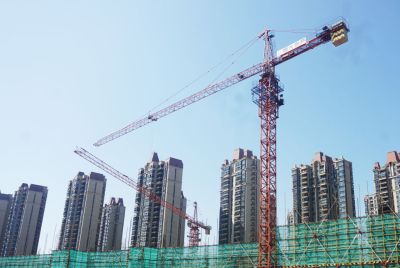Happy Wednesday! As is always the case with these regional meetups, we were blown away by the turnout and the quality conversations at Café Hollander in Wauwatosa, Wisconsin, last night!
Next up: Des Moines. Iowans, keep an eye out for additional details in the coming weeks!
Quick Hits: Today’s Top Stories
- Commerce Secretary Gina Raimondo will travel to China next week, the Commerce Department confirmed Tuesday. Raimondo, whose unclassified email was the target of a Chinese hack earlier this year, will be the latest in a series of Biden administration officials to visit the country as the United States implements export and investment restrictions on China. Ahead of the trip, the Biden administration lifted some limits on exports to 27 Chinese entities while also imposing visa restrictions on some Chinese officials for abuses against Tibetan children.
- The Biden administration on Tuesday rolled out another student loan repayment plan, months after the Supreme Court struck down Biden’s effort to cancel up to $20,000 in student loan debt for some borrowers. The SAVE Plan—Saving on a Valuable Education—will adjust loan repayment based on income and household size and caps interest accrual for borrowers who enroll.
- House Judiciary Committee Chairman Jim Jordan and Ways and Means Committee Chairman Jason Smith subpoenaed several FBI and Internal Revenue Service agents on Monday in an effort to probe whistleblowers’ allegations regarding the investigation into Hunter Biden. The Republican lawmakers believe—based on claims by IRS whistleblower Gary Shapley—that the subpoenaed officials were privy to an October 7, 2022, meeting where David Weiss, the federal prosecutor investigating Biden, may have suggested the decision whether or not to bring charges was not ultimately in his hands.
- John Eastman—one of former President Donald Trump’s former advisors and a co-defendant in the Fulton County, Georgia, case regarding attempts to overthrow the 2020 election—turned himself in to Fulton County authorities Tuesday with an arraignment expected in the next several weeks. The judge overseeing the case ruled Tuesday the arraignments—including that of Trump—could be televised. Meanwhile former assistant attorney general Jeffrey Clark and David Shafer, one of the fake electors, joined Mark Meadows in filing notices of removal to have the case taken out of state court and moved into the federal system.
- Existing home sales fell in July for the fourth time in five months, slipping by 2.2 percent month-over-month and 16.6 percent yearly, the National Association of Realtors said Tuesday. The slump comes amid rising mortgage rates, limited supply, and spiking home prices—the national median existing-home price rose 1.9 percent in July from the previous year.
- Iran unveiled a drone—similar in design to the U.S. MQ-9 Reaper drone—Tuesday which it says has a range making it capable of reaching Israel. Iran’s state-run news agency claimed the new unmanned aerial vehicle could carry a bomb with a more than 600 pound payload or surveillance equipment.
- President Joe Biden appointed Ed Siskel as the new White House Counsel Tuesday. Previously deputy counsel during the Obama administration and counsel in the Chicago mayor’s office under Rahm Emmanuel, Siskel will replace Stuart Delery, whose departure Biden announced last week.
- Former Democratic Rep. Debbie Mucarsel-Powell of Florida said Tuesday she will challenge Sen. Rick Scott for his seat in 2024. Mucarsel-Powell served one term in Congress from 2018-2020 and is currently the only candidate running against Scott, who was formerly governor of Florida.
- A Chicago woman was charged Monday with threatening to shoot former President Donald Trump and his teenage son Barron in a series of emails to the headmaster of Barron Trump’s Florida school in May and June. Tracy Fiorenza—whom the Secret Service has been aware of for several years and whom law enforcement officials say struggles with mental health issues for which she’s stopped taking her medication—was remanded into the custody of U.S. Marshals and will likely be transferred to Florida, where the charges were filed.
China’s Beaten Economic Path

Traveling outside of China for just the second time in 2023, President Xi Jinping was scheduled to deliver a speech in Johannesburg on Tuesday during the annual BRICS Summit that features Brazil, Russia, India, China, and South Africa. At the last minute, however, he decided to skip it. Chinese Commerce Minister Wang Wentao spoke instead.
The summit came a week after dismal economic data showed the Chinese economy continues to sour—perhaps the reason for Xi’s speaking absence. Bad news in China is like fight club: you don’t talk about it. For example, the National Bureau of Statistics suspended its reporting on youth unemployment last week after it reached 21.3 percent in June—the highest rate since China started publishing the data in 2018. And more storm clouds are on the horizon for the “miracle economy.”
Since the turn of the century, the story of the Chinese economy has been one of seemingly unending growth. While many developed countries struggled to achieve even 3 percent real GDP growth year-over-year, China was routinely putting up double-digit figures: 10.1 percent, 12.7 percent, 14.2 percent. In fact, the People’s Republic of China (PRC)—now 1.4 billion strong—grew at an average rate of 9.5 percent between 1979 and 2018, according to World Bank data. The pandemic briefly interrupted this story, and China’s GDP growth had begun to taper off before COVID. Yet, even as late as this February, some investors predicted a return to the ever-upward trajectory.
But that narrative always had holes in it. Despite its decades of growth, the Chinese economy—bolstered by unprecedented levels of state spending and investment—was never immune to the economic principles that govern all major economies, and cracks have been apparent for years if you knew where to look. Now, however, the country’s economic shortfalls are out in the open for all to see: deflation and weakening demand, troubling demographic trends, and decades of overaggressive state spending finally catching up with policymakers.
For Beijing, as we wrote last month, the days of double-digit growth are long gone:
China’s economy is looking shaky from virtually every angle. Top-line growth is sluggish: GDP grew only 0.8 percent in the second quarter of this year, down from its 2.2 percent growth in the first quarter of 2023. Year-over-year figures for Q2 were slightly more encouraging at 6.3 percent, but the robust number belies the reality that in mid-2022 China was still under strict pandemic restrictions, so the comparative growth looks more impressive than it is.
Economic indicators for July came in well below economists’ expectations, casting the weak Q2 GDP numbers as a trend, not a blip. The country’s exports were down 14.5 percent in July compared to July 2022—the largest such drop since February 2020—and imports were down 12.4 percent year-over-year, more than double the 5 percent decrease predicted by a Reuters poll of economists. Retail sales, industrial production, and property-investment returns all fell as well. “The old downside scenario has now become the base case—with expectations that by 2030 annual growth will have slowed to around 3.5 percent,” said Tom Orlik, chief economist at Bloomberg. Most big banks now project China’s 2023 GDP growth will be below the country’s official target rate of 5 percent. President Biden described China’s economic woes as a “ticking time bomb” earlier this month.
Real estate is one of the largest contributors to this broader slowdown. Traditionally accounting for somewhere between 20 and 30 percent of China’s GDP, the sector has been on the receiving end of insane amounts of investment over the years, resulting in a building boom that produced a bubble that is now in the process of popping. Although official statistics tend to paint a rosier picture, housing prices are falling in regions across the country, and as many as 20 percent of homes are currently lying vacant in some cities. Plus, Country Garden—until recently the country’s largest property developer—appears on the brink of default after failing to make interest payments to investors earlier this month, and Evergrande—another Chinese real estate development giant—filed for bankruptcy last week after defaulting on its debt in 2021. “If there’s a grand unified theory of China’s economic woes, it’s simply ‘too much real estate,’” argues Noah Smith, economics writer and former Bloomberg columnist.
All the bad news has spooked investors, sending Hong Kong’s Hang Seng Index into a bear market—a decline of more than 20 percent from its most recent peak. Both the Hang Seng and the CSI 300 indexes continued to fall last week, even after the People’s Bank of China cut its one-year loan prime rate from 3.55 percent to 3.45 percent. Yet even as the warning signs accumulate, China's economy is unlikely to collapse all at once—the CCP’s tight control over banks and lending largely prevents financial scares from spiraling out of control.
More likely is a sustained deceleration in economic growth as China’s state-controlled and debt-driven model of investing in real estate and infrastructure produces increasingly diminishing returns. “When you wander away from market reform, which they did and everyone praised them for it, you blow tons of money or tons of opportunities,” Derek Scissors, a senior fellow at the American Enterprise Institute focused on China’s economy, tells TMD. “The government’s making all these decisions instead of the market, and this is where they’re going to naturally end up.”
China appears on track to be stuck in the so-called middle-income trap—an economic phenomenon where developing economies stagnate before reaching the wealth levels of advanced economies. Income levels have made huge gains—close to 800 million people in China have risen above the international poverty line in the last four decades, accounting for 75 percent of the global poverty reduction during that period. But Chinese GDP per capita—$12,720 in 2022, according to the World Bank—is still a far cry from many developed countries and below the World Bank’s $13,845 benchmark for high-income countries. (2022 U.S. GDP per capita was $76,398.)
One path to escaping the trap is innovation, which could boost productivity, investment returns, and growth. And Xi has tried to pivot from real estate and invested heavily in growing ‘smart’ industries such as chips, electric vehicles, and even artificial intelligence. “We cannot be ambitious and unrealistic, but we cannot simply follow the beaten path,” Xi was quoted as saying in a speech earlier this year to CCP members that was released publicly last week.
But such government investments may not be able to make up for the decline in GDP growth precisely because of the CCP’s heavy hand in controlling industry. “When you’re relying on innovation and you don’t trust your own private sector, you’re not going to get as much innovation as you should,” Scissors tells TMD. “They’re going to have some success in creating new sectors to lead the economy, but not as much as they should because they don’t want the private sector to be that successful.”
The push by the United States and its allies to “de-risk” certain sectors and industries—particularly semiconductors—by reducing reliance on China could also put pressure on Chinese growth. The PRC has relied on stealing and copying tech innovations in the past, but such practices could face heightened pushback. Commerce Secretary Gina Raimondo will travel to China next week and has said she wants to raise “really serious concerns” about intellectual property theft.
And if the economic problems weren’t enough, the PRC’s demographics are likely to compound the decline. Thanks to China’s one-child policy—a restriction in place until 2016 that prevented couples from having more than one baby—the country’s population will continue to shrink in the coming decades. “The base for Chinese economic activity, which is ultimately its people, is going to contract, and contract, and contract,” Scissors tells TMD. The population will grow older with fewer working-age people to participate in the economy, further depressing growth and putting pressure on China’s social safety net.
“The Chinese are going to be old where people are not as well off as they could be,” says Scissors. “Old societies that have seen their population contract don’t grow.”
Worth Your Time
- A fascinating analysis for Politico reveals even small college towns across the country are growing—and turning blue or bluer—at rates that may spell electoral trouble for the GOP. “Name the flagship university and the story tends to be the same,” Charlie Mahtesian and Madi Alexander write. “If the surrounding county was a reliable source of Democratic votes in the past, it’s a landslide county now. The American Communities Project, which has developed a typology of counties, designates 171 independent cities and counties as ‘college towns.’ Of those 171 places, 38 have flipped from red to blue since the 2000 presidential election. Just seven flipped the other way, from blue to red, and typically by smaller margins. Democrats grew their percentage point margins in 117 counties, while 54 counties grew redder. By raw votes, the difference was just as stark: The counties that grew bluer increased their margins by an average of 16,253, while Republicans increased their margins by an average of 4,063. There’s no single factor driving the college town trend. In some places, it’s an influx of left-leaning, highly educated newcomers, drawn to growing, cutting-edge industries advanced by university research or the vibrant quality of life. In others, it’s rising levels of student engagement on growing campuses. Often, it’s a combination of both.”
- Donald Trump as the Republican nominee isn’t the foregone conclusion you think it is, Seth Moskowitz argues in Discourse magazine. “Trump still has a long way to go before claiming the nomination, and there are a number of ways in which his coronation could be thwarted,” he writes. “One explanation for Trump’s continued dominance is that many Republicans haven’t paid much attention to the primary yet and simply choose Trump in polls as a default. The second reason is that the early primary states have the potential to shake up the entire contest. Iowa, New Hampshire, Nevada and South Carolina cast primary votes ahead of other states and are the best chance for non-Trump candidates to put a dent in Trump’s armor. Third, the dynamics of the race could change as the field consolidates. At the moment, the non-Trump field is so divided that there is no one clear alternative to Trump. Fourth are Trump’s various legal issues. It’s definitely possible that he could very well lose support the closer he gets to facing serious legal consequences. Fifth, and most immediately relevant, is that voters could be put off by Trump not even appearing to compete for their votes. In his first campaign and his presidency, Trump crafted the image of himself as a voice and fighter for the GOP base. But he risks that image when he acts as if GOP voters owe him the nomination even if he isn’t willing to show up to defend his ideas in a public forum.”
Presented Without Comment
Politico: “A Trump employee who monitored security cameras at Donald Trump’s Mar-a-Lago estate abruptly retracted his earlier grand jury testimony and implicated Trump and others in obstruction of justice just after switching from an attorney paid for by a Trump political action committee to a lawyer from the federal defender’s office in Washington, prosecutors said in a court filing Tuesday.”
Also Presented Without Comment
Semafor: “Trump Super PAC has created a ‘VP Presidential Debate’ website ahead of Wednesday’s debate—complete w/ a bobble-head looking image of each candidate and an option to ‘vote’ for who Trump should pick as his VP.”
Also Also Presented Without Comment
Mediaite: Vivek Ramaswamy Paid to Have His Soros Fellowship and Covid-Era Role Scrubbed From Wikipedia Page
Toeing the Company Line
- Following the first GOP primary debate, join the Dispatch team for a special edition of Dispatch Live (🔒)! Tune in to this members-only event at 11 pm ET tonight to get analysis and reporting from Kevin, Mike, Jonah, Sarah, and the crew on the ground in the “spin room” in Milwaukee—Steve, Drucker, and Audrey.
- In the newsletters: Nick argues (🔒) a stalemate in Ukraine could spell bad news for Biden’s reelection prospects.
- On the podcasts: Jonah is joined on The Remnant by Robert D. Kaplan to discuss foreign policy, the politics of the Middle East, and what a realist approach to international relations looks like.
- On the site today: Price explains the complicated logistics of four trials in four jurisdictions for one defendant, Kevin imagines what a Kevin-hosted GOP debate would look like, and Jonah offers his own musings about what we should expect during tonight’s debate.
Let Us Know
Give us two predictions for how things will play out during tonight’s GOP primary debate: one that’s realistic, and one that’s more … imaginative.







Please note that we at The Dispatch hold ourselves, our work, and our commenters to a higher standard than other places on the internet. We welcome comments that foster genuine debate or discussion—including comments critical of us or our work—but responses that include ad hominem attacks on fellow Dispatch members or are intended to stoke fear and anger may be moderated.
With your membership, you only have the ability to comment on The Morning Dispatch articles. Consider upgrading to join the conversation everywhere.